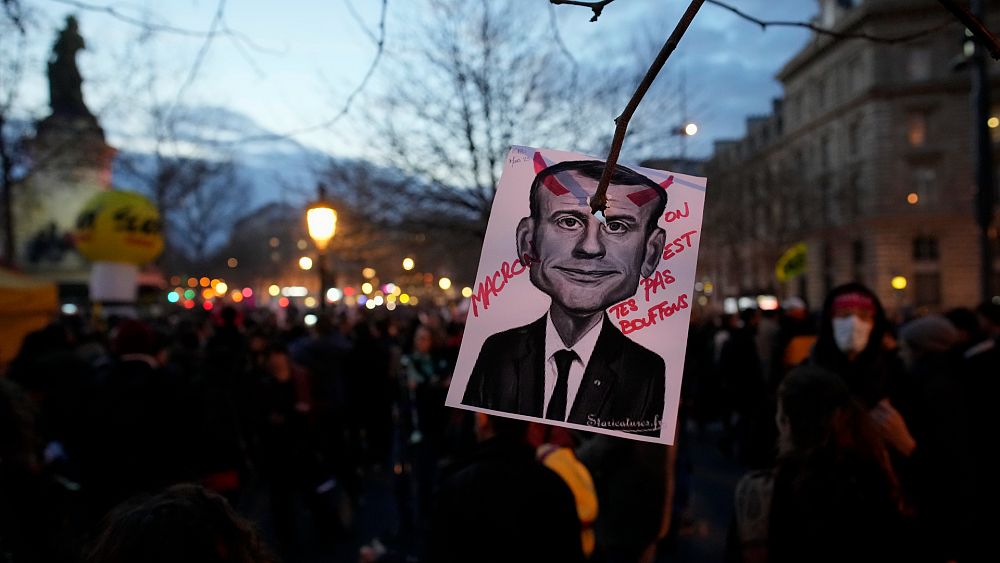
French President Emmanuel Macron will address the country on Wednesday in a much-anticipated television interview, aimed at appeasing the anger against his pension reform adopted by forceps and explaining how he intends to overcome this crisis without changing his government or turning to voters.
Macron will answer journalists Marie-Sophie Lacarrau of TF1 and Julian Bugier of France 2 at 1 pm, live from the Elysée Palace, on the eve of a new day of union mobilisation on Thursday and as demonstrations, sometimes violent, continued across the country.
In Paris, a tense confrontation with exchanges of projectiles and tear gas pitted a few hundred people against the police on Tuesday evening in Place de la République. Forty-six people were arrested.
Other demonstrations took place in Lille and Grenoble, as well as in Rennes and Nantes, where tear gas shots were reported.
Several oil depots remained blocked. Incidents broke out on Tuesday in Fos-sur-Mer, near Marseille, where the authorities proceeded to requisition striking staff at a time when 12% of the country’s service stations have run out of petrol or diesel.
“The crowd has no legitimacy”
In the face of these tensions, Macron called on the government on Tuesday to “calm down” and “listen to the anger”, while taking responsibility for his decisions, according to participants in a meeting with parliamentarians from his party at the end of a day of intense consultations.
“The crowd, whatever it is, has no legitimacy in the face of the people who express themselves sovereignly through their elected representatives,” Macron warned.
Earlier in the day, Macron told allies that he has no intention of dissolving parliament, reshuffling the government or calling a referendum on pension reform to calm tensions. He will also stand by his beleaguered prime minister.
“No dissolution, no reshuffle, no referendum,” he said according to one participant.
The use of Article 49.3 of the Constitution to pass the text without a vote has rekindled protests against pension reform, particularly since it was followed by a motion of censure against the government, which was rejected by only nine votes.
“The President is the problem”
Deprived of an absolute majority since the June legislative elections, Macron has not been able to count on the full support of MPs from the centre-right Les Républicains (LR) as he had hoped.
In an interview with Le Figaro newspaper, former Prime Minister Edouard Philippe advised him to “broaden” his political base with “a coalition” ranging “from the LR to the elected representatives of the left who do not find themselves in the Nupes (left-wing alliance)”.
But it’s a risky strategy, given the rejection expressed by the opposition.
“The problem is the President of the Republic”, said the leader of the LR deputies, Olivier Marleix.
Macron “set the fire and closed all the exits” by “passing by force”, said left-wing opposition leader Jean-Luc Mélenchon, while the leader of the far-right National Rally, Marine Le Pen, warned in an interview with AFP that the president alone had “the keys to a political crisis that he has created.”
In the immediate future, the president has asked his troops to make “proposals” within two to three weeks for a “change of method and reform agenda”, which could allow him to avoid making any strong announcements during the interview on Wednesday.
On Tuesday evening, he also promised to “move forward” on “health, school and ecology” while organising “the society of full employment”.



